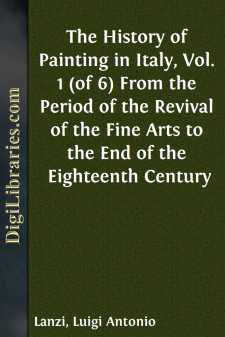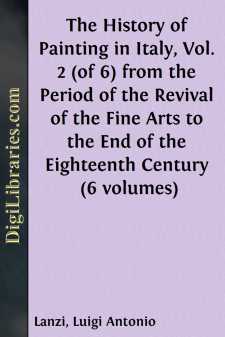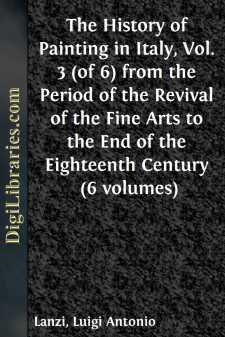Categories
- Antiques & Collectibles 13
- Architecture 36
- Art 48
- Bibles 22
- Biography & Autobiography 813
- Body, Mind & Spirit 142
- Business & Economics 28
- Children's Books 15
- Children's Fiction 12
- Computers 4
- Cooking 94
- Crafts & Hobbies 4
- Drama 346
- Education 46
- Family & Relationships 57
- Fiction 11828
- Games 19
- Gardening 17
- Health & Fitness 34
- History 1377
- House & Home 1
- Humor 147
- Juvenile Fiction 1873
- Juvenile Nonfiction 202
- Language Arts & Disciplines 88
- Law 16
- Literary Collections 686
- Literary Criticism 179
- Mathematics 13
- Medical 41
- Music 40
- Nature 179
- Non-Classifiable 1768
- Performing Arts 7
- Periodicals 1453
- Philosophy 64
- Photography 2
- Poetry 896
- Political Science 203
- Psychology 42
- Reference 154
- Religion 513
- Science 126
- Self-Help 84
- Social Science 81
- Sports & Recreation 34
- Study Aids 3
- Technology & Engineering 59
- Transportation 23
- Travel 463
- True Crime 29
Luigi Antonio Lanzi
Luigi Antonio Lanzi (1732-1810) was an Italian art historian, archaeologist, and priest known for his contributions to the study of Italian art and ancient civilizations. His most significant work, "Storia pittorica della Italia" (History of Painting in Italy), published in the late 18th century, is an influential survey of Italian painting from the medieval period to his time. Lanzi was particularly interested in the regional schools of painting and helped establish a systematic approach to art history. He also made contributions to archaeology with his studies of Etruscan and Roman antiquities.
Author's Books:
Sort by:
PREFACE. When detached or individual histories become so numerous that they can neither be easily collected nor perused, the public interest requires a writer capable of arranging and embodying them in the form of a general historical narrative; not, indeed, by a minute detail of their whole contents, but by selecting from each that which appears most interesting and instructive. Hence it mostly...
more...
ROMAN SCHOOL. I have frequently heard the lovers of art express a doubt whether the Roman School possesses the same inherent right to that distinctive appellation as the schools of Florence, Bologna, and Venice. Those of the latter cities were, indeed, founded by their respective citizens, and supported through a long course of ages; while the Roman School, it may be said, could boast only of Giulio...
more...
VENETIAN SCHOOL. This School would have required no farther illustration from any other pen, had Signor Antonio Zanetti, in his highly esteemed work upon Venetian Painting, included a more ample consideration of the artists of the state, instead of confining his attention wholly to those, whose productions, ornamenting the churches and other public places, had all been completed in the city of Venice...
more...




